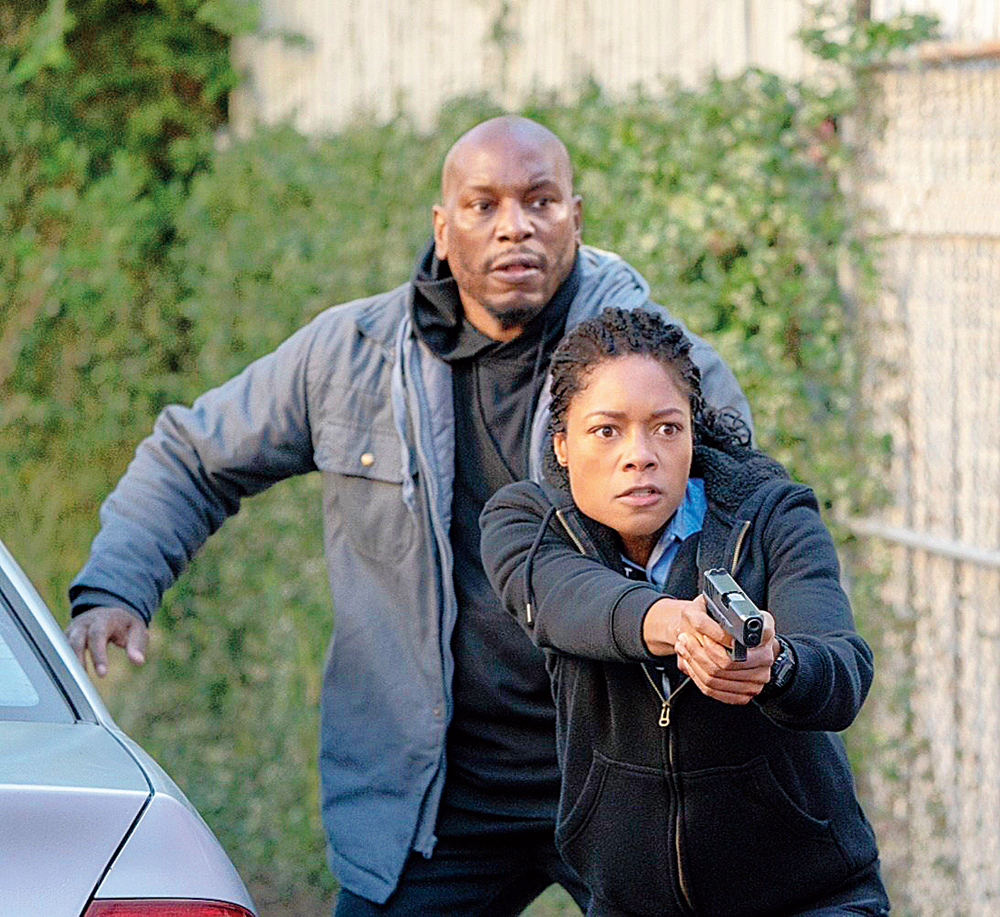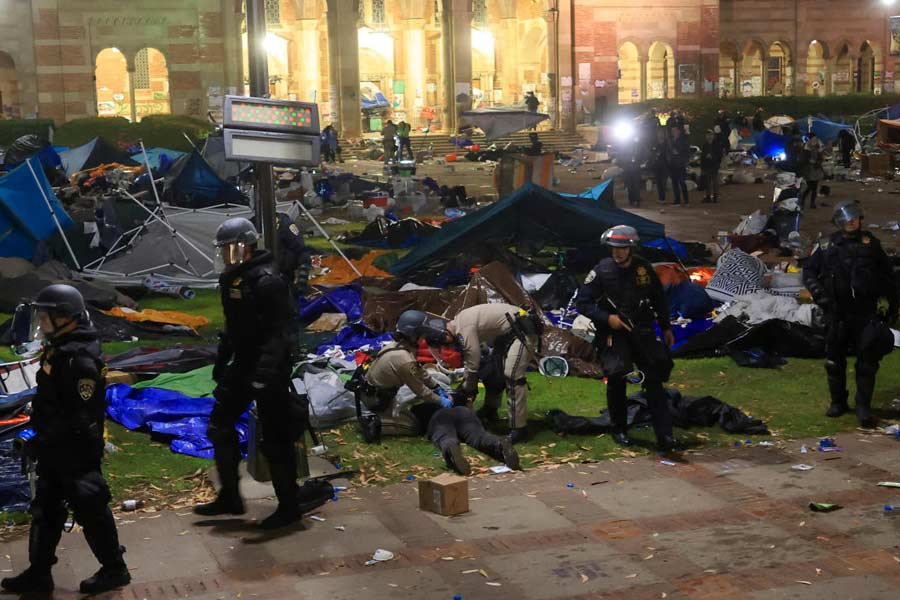Asupremely stressful day in Alicia West’s life — she will be shot at, betrayed and hunted by ruthless men on both sides of the law — begins with a morning jog through a quiet New Orleans neighbourhood. Head down, earbuds in, minding her business, Alicia is stopped and frisked by police officers because she “fits the profile.” In other words, because she’s black. But when one of the patrolmen runs her identification, he tells his partner to let her go because “she’s blue,” i.e. one of their colleagues on the force.
This is a blunt, efficient way for Black and Blue — a blunt, efficient thriller directed by Deon Taylor — to explain its title and its theme. Played by Naomie Harris with a quiet intensity that has room for notes of sorrow and confusion, Alicia is defined by an identity crisis that is hardly hers alone. For reasons that are partly temperamental and partly a matter of sheer bad timing, she’s caught up in an especially lethal set of contradictions involving her job and her race.
Alicia, who has come home to New Orleans after combat duty in Afghanistan and the death of her mother, is a rookie and a bit of a loner, though she seems to have a decent rapport with her partner, Kevin (Reid Scott). Because of her job, people she grew up with treat her with coldness and suspicion, in particular her former best friend, Missy (Nafessa Williams). Milo (Tyrese Gibson), the manager of a grocery store, who goes by “Mouse,” is a little friendlier, but he also makes it clear that the line that separates them isn’t one he can comfortably cross.
As the engine of its plot starts revving up, the movie takes in some of the realities of American life with matter-of-fact weariness. The scars of Katrina — and of the neglect and corruption that followed — are still evident, and the alienation of poor, black citizens is painful and profound. Alicia wants to believe something else is possible, that common ground exists, that people don’t have to be classified as “allies or enemies,” but this modest idealism only emphasises her isolation. Rhetoric that once sounded hopeful and inspiring now sounds naïve. She’s hardly foolish or starry-eyed, but her desire not to succumb completely to cynicism means that no one else trusts her. It also endangers her life.
How that comes about isn’t something I’m inclined to spoil, though it isn’t hard to figure out what’s going on or what’s coming next. Alicia stumbles on a bunch of dirty cops, led by a narcotics detective who goes by Malone (Frank Grillo), doing some terrible things, which happen to be captured by her body camera. Malone and his crew are mixed up with a drug gang (its leader is played by Mike Colter), and before long both groups are chasing her through alleys and housing projects.
Rather than dress up its action with tricky, too-clever plot twists, Black and Blue respects both Alicia’s and the viewer’s intelligence. It doesn’t take too long to figure out who the bad guys are, or to see where the next bit of treachery will come from. Alicia and the reluctant Mouse are caught up in a conspiracy so vast and deeply rooted that it seems like part of the city’s infrastructure.
That’s a depressing thought, and Alicia is an apt heroine for a time of dread, disappointment and diminished expectations. I don’t mean to make the movie sound altogether grim. Taylor is good at choreographing violence and orchestrating suspense, and also at finding the grain of humor in each performance. He showed all of these skills earlier this year in “The Intruder,” a real-estate thriller that flirted with some of the social implications that “Black and Blue” commits to without reservation.
The politics here are elemental and undeniable without being preachy or pretentious. There are one or two soapbox moments, including a self-justifying speech by the principal villain, that could have been left out, but to say as much is really just to note how tight and coherent the movie otherwise succeeds in being.
Sometimes genre entertainment can illuminate troubling realities better than more earnest and self-seriously realistic films, and Black and Blue belongs to that tradition. Its pulpy pop-cultural credibility is inseparable from its honest, brutal assessment of the state of the world. Its ideas about the nature and limits of heroism — about just how hard and terrifying the resistance to evil can be — are spelled out in vivid black and white.










